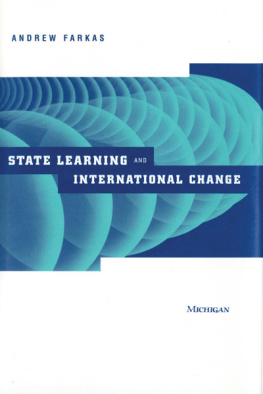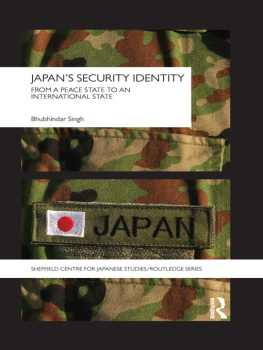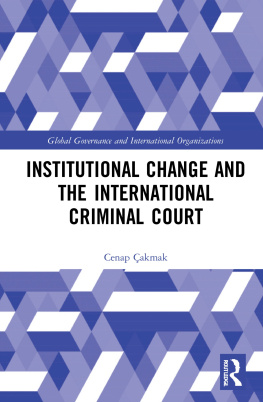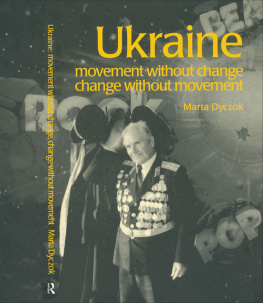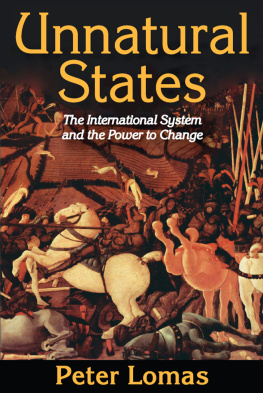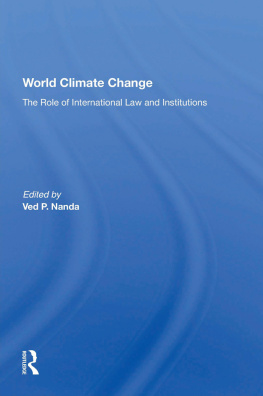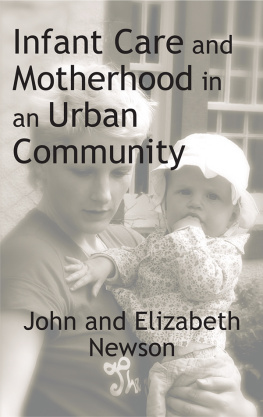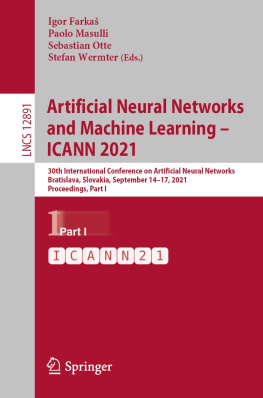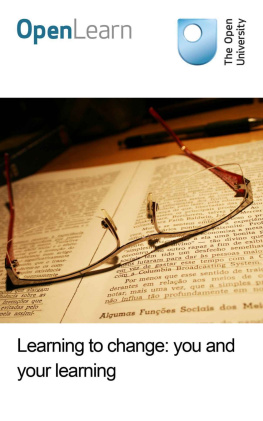Farkas - State Learning and International Change
Here you can read online Farkas - State Learning and International Change full text of the book (entire story) in english for free. Download pdf and epub, get meaning, cover and reviews about this ebook. City: Ann Arbor, year: 2001, publisher: University of Michigan Press, genre: Politics. Description of the work, (preface) as well as reviews are available. Best literature library LitArk.com created for fans of good reading and offers a wide selection of genres:
Romance novel
Science fiction
Adventure
Detective
Science
History
Home and family
Prose
Art
Politics
Computer
Non-fiction
Religion
Business
Children
Humor
Choose a favorite category and find really read worthwhile books. Enjoy immersion in the world of imagination, feel the emotions of the characters or learn something new for yourself, make an fascinating discovery.
State Learning and International Change: summary, description and annotation
We offer to read an annotation, description, summary or preface (depends on what the author of the book "State Learning and International Change" wrote himself). If you haven't found the necessary information about the book — write in the comments, we will try to find it.
Farkas: author's other books
Who wrote State Learning and International Change? Find out the surname, the name of the author of the book and a list of all author's works by series.
State Learning and International Change — read online for free the complete book (whole text) full work
Below is the text of the book, divided by pages. System saving the place of the last page read, allows you to conveniently read the book "State Learning and International Change" online for free, without having to search again every time where you left off. Put a bookmark, and you can go to the page where you finished reading at any time.
Font size:
Interval:
Bookmark:

Andrew Farkas
THE UNIVERSITY OF MICHIGAN PRESS
Ann Arbor
Copyright by the University of Michigan 1998
All rights reserved
Published in the United States of America by
The University of Michigan Press
Manufactured in the United States of America Printed on acid-free paper
Printed on acid-free paper
2001 2000 1999 1998 4 3 2 1
No part of this publication may be reproduced, stored in a retrieval system, or transmitted in any form or by any means, electronic, mechanical, or otherwise, without the written permission of the publisher.
A CIP catalog record for this book is available from the British Library.
Library of Congress Cataloging-in-Publication Data
Farkas, Andrew, 1958
State learning and international change / Andrew Farkas.
p. cm.
Includes bibliographical references and index.
ISBN 0-472-10654-6 (cloth: alk. paper)
1. International relations. 2. Social change. 3. State, The. 4. Learning, Psychology of. I. Title.
JZ1316.F37 1998
327.1dc21
98-19129
CIP
ISBN13 978-0-472-10654-7 (cloth)
ISBN13 978-0-472-02734-7 (electronic)
Although they may regret having their names associated with this project, a number of individuals provided me the support, guidance, and education I needed to complete this project. My first teachers in graduate school were helpful, influential, and patient. I could not have been more fortunate than to have been educated by John Lewis Gaddis, Robert G. Gilpin, Robert Luskin, Kenneth A. Oye, and Oran R. Young. They started me on the rather lengthy journey, the result of which is on the pages that follow. Their preparations and guidance have served me in good stead, and have been helpful along the way. I owe a debt of gratitude to Bruce Bueno de Mesquita, who has been a teacher, long-distance mentor, and constant source of good advice. I would also like to thank the late Dean Donald Stokes for lending a sympathetic ear, and always being at the ready to ease administrative burdens. I would also like to thank Jack Levy, who has not only been a critical reader and supportive senior colleague, but who got me a job as well. Most of all, I would like to thank my teachers, George W. Downs, Joshua M. Epstein, and Donald A. Stratton. This volume is largely the result of my presenting George W. Downswhose breadth of knowledge still amazes mewith interesting puzzles and recording his observations. Joshua M. Epstein, who always offered sound advice and encouragement, introduced me to genetic algorithms and encouraged me to apply those techniques to the study of collective learning. Donald A. Stratton was ever so helpful as I tried to understand how biologists build their models, and he has continued to help me expand my knowledge of mathematical biology.
For financial support, I would like to acknowledge Princeton University, the Center of International Studies and the Association of Graduate Alumni at Princeton, the John D. and Catherine T. MacArthur Foundation, The Woodrow Wilson Foundation, and the Princeton Society of Fellows.
Finally, to Jonathan and Cheryl, who are glad it is over, thank you. To Nissim Lieb, who only arrived in time to see the end product, your entrance could not have been better timed.
Introduction
Change, State Learning, and International Politics
A science of international politics, like any scientific enterprise, is an attempt to explain change. Whether a particular author is more interested in explaining why change occurs (e.g., Gilpin 1981), why change does not occur for a long period (e.g., Waltz 1979), or how particular changes came about (e.g., Deudney and Ikenberry 1991), accounting for variance in behavior is at the core of the study of international relations. Change in international politics occurs through alterations in the behavior of international actors. These actors, usually states, may modify their foreign policies because of changes in conditions such as the balance of power, the distribution of strategic resources, or patterns of trade. These changes, though, cannot affect foreign policy directly because states themselves cannot act. A change in foreign policy is the result of actions taken by human beings on behalf of the state. State learning, therefore, is the process that intervenes between the causeinternational changeand its effect, policy change. So, to appreciate how international changes will be reflected in foreign policies, one must understand the accuracy of and the manner through which state learning transmits information about international change. This book is an attempt to understand this process of state learning.
By focusing on state learning, this effort to understand the process of international change tries to explain how states arrive at foreign policy decisions. In so doing, it asks questions about the rationality of the state and the relationship of the state to the individuals who act on its behalf. Specifically, it tries to understand how states can appear to be rational when human policy makers do not themselves behave as if they were rational actors. Thus, one of the contributions of this project is to reconcile the research programs of rational choice and political psychology by developing a set of models grounded in assumptions consistent with psychological findings and producing behavior consistent with rational choice. To use Simon's (1976) terms, this is an effort to bridge the gap between models of substantive rationality and models of procedural rationality (see also Binmore 1987).
Although this book is about state learning, it necessarily confronts issues dealing with learning by collectivitiesthat is, groups of people striving toward a common goalmore generally. When studying international relations, it is often convenient to write as if states were thinking, analytic beings that interact with their environment and pursue their objectives. One must be very careful, however, to avoid letting this linguistic shortcut lead to unsound theorizing. States are not living beings; they are logical constructs. As such, they have no preferences, nor can they think, analyze their situations, take action, or, for that matter, learn.
Individual human beings acting as a group determine a state's goals, acquire information, analyze conditions, and take action on behalf of the state. Therefore, when studying state learning one is effectively dealing with a more generic question: how do collectivities learn? While the conclusions of this volume are applicable most directly to the behavior of states, and while the illustrative data are drawn largely from international relations, the book also deals with the broader phenomenon of collective learning. This explanation of collective learning is an attempt to ground theories of group behavior in plausible theories of individual action (see Schelling 1978). The models developed here are based on the assumption that human beings are goal-seeking actors. As such, this project is in the tradition of rational-choice modeling. However, this book is more an effort to the support the assumptions of rational-choice models, and to address some of the problems suggested by those models, than it is an effort to develop new rational-choice modeling techniques.
Learning and Rationality
The work presented here is an attempt to use evolutionary models to reconcile insights from rational choice and psychology to develop a model of state learning. For more than 50 years, rational-choice theorists have been pointing to the power, elegance, and clarity of their models (e.g., Friedman 1953). At the same time, critics have complained about the nature of the assumptions made in rational-choice models and pointed out that they do not comport with what is known of human behavior (e.g., Quattrone and Tversky 1988). This book asks how peoplewho individually do not act as if they were rationalcan form a group that does appear to act rationally.
Font size:
Interval:
Bookmark:
Similar books «State Learning and International Change»
Look at similar books to State Learning and International Change. We have selected literature similar in name and meaning in the hope of providing readers with more options to find new, interesting, not yet read works.
Discussion, reviews of the book State Learning and International Change and just readers' own opinions. Leave your comments, write what you think about the work, its meaning or the main characters. Specify what exactly you liked and what you didn't like, and why you think so.

